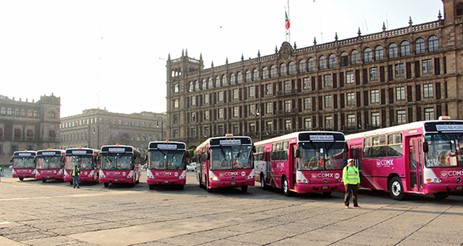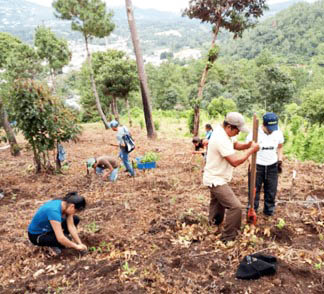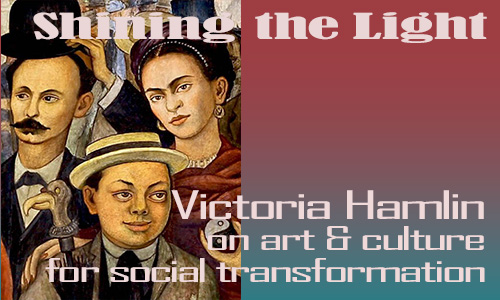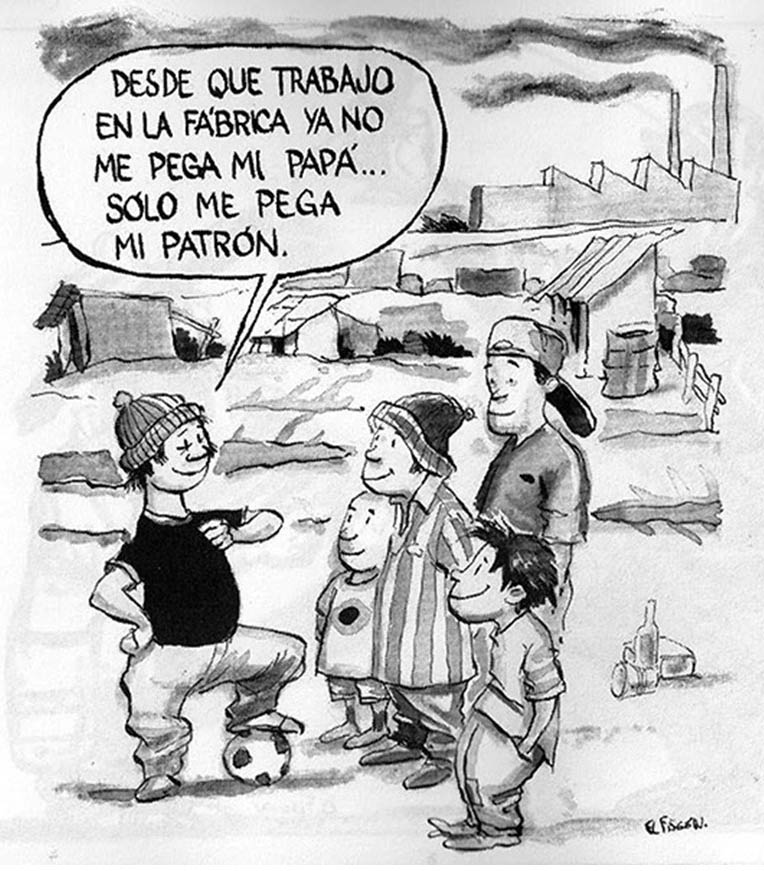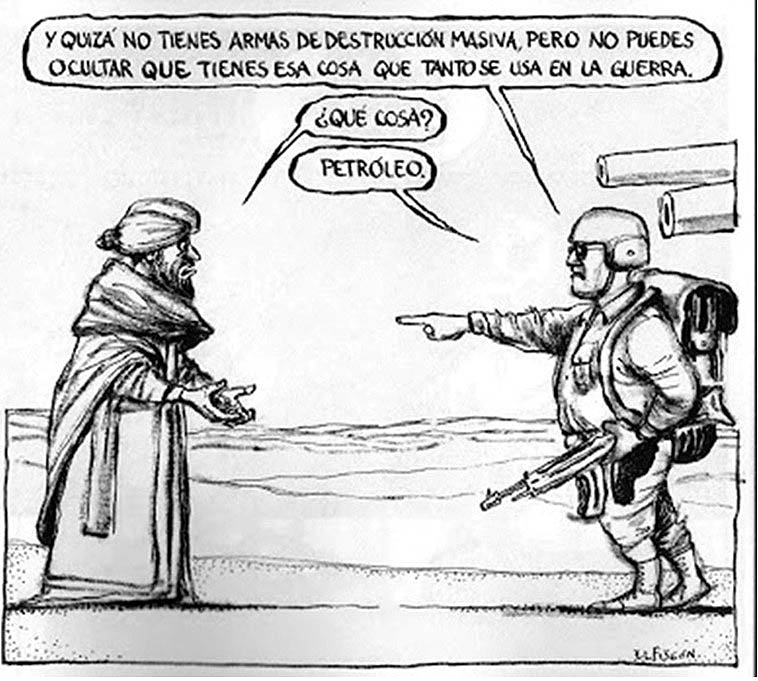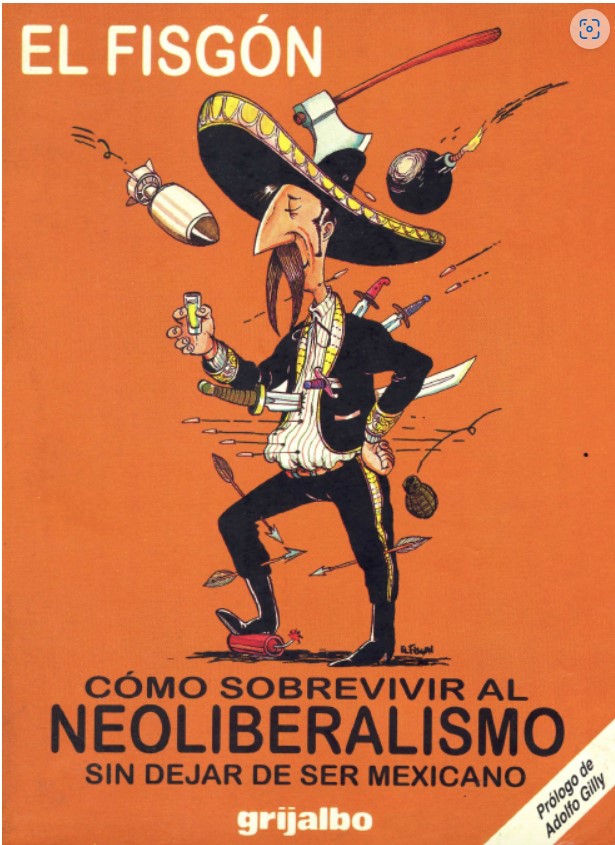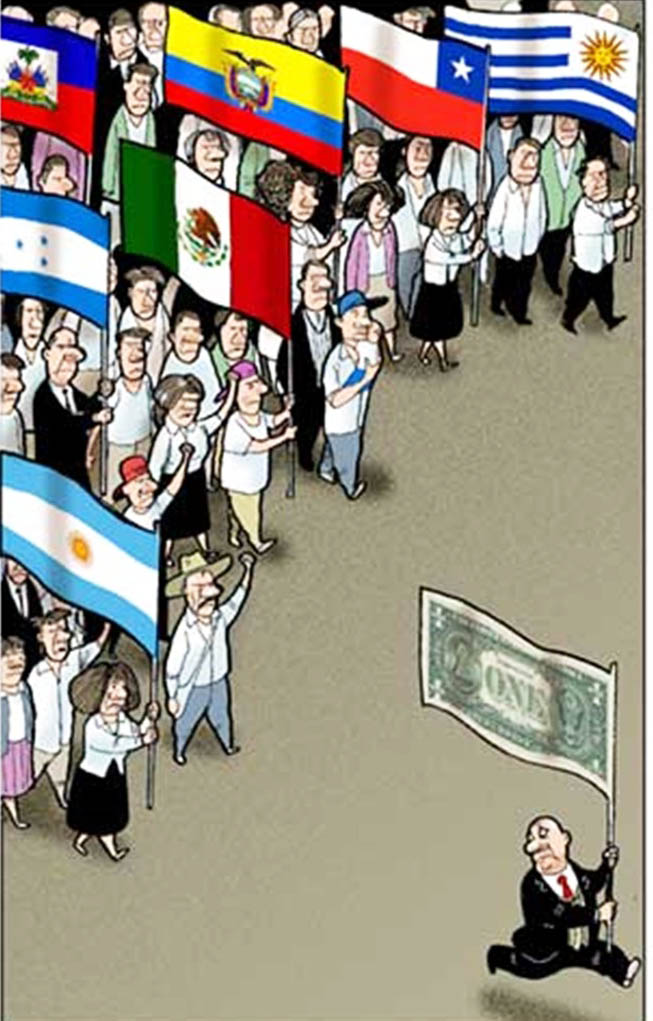|
|
|
|
The weekly newsletter of the México Solidarity Project |
|
|
|
Every issue archived online at mexicosolidarityproject.org |
|
|
|
Oleandra/123RF |
|
Solidifying México’s Fourth Transformation |
|
Transformations go on around us every day. Just look in your freezer. You put in a liquid and pull out a solid. Look in the mirror. Where once a babbling baby, now maybe a babbling senior!
Andrés Manuel Lopez Obrador, ever since his 2018 presidential election, has been working for a national transformation, a shift as profound as México’s war for independence in 1810, the 1861 reforms that separated church and state, and the revolutionary struggle that began in 1910.
Both the US and Mexican mainstream media have treated AMLO’s “Fourth Transformation” — or “4T” for short — as nothing but hogwash. Elite US interests simply don’t want México to change. They prefer as presidents of México pliant souls content to serve as fixers-in-chief for US interests ever eager to exploit México’s ample natural and human resources.
But ordinary Mexicans have welcomed the 4T. They’ve already experiencing transformation. Over two-thirds of Mexicans, 67.8 percent, have medium to high levels of confidence in AMLO, says a new survey from the National Institute of Statistics and Geography, an autonomous public body. His greatest support is coming from México’s poor. They’ve watched López Obrador make good on his promise to prioritize the formerly ignored.
In politics, of course, nothing can ever be as sure as water turning to ice. And the “water” of Mexican political culture hasn’t yet solidified into something qualitatively more democratic and egalitarian. Will the 4T continue or will México slip back into its old ways? That could depend on Claudia Sheinbaum, currently the chief exec in México City and the leading candidate to succeed AMLO in next year’s presidential election.
Sheinbaum supports the 4T and had a great deal to say about it in an interview conducted last week. We have excerpts from that interview in this week’s issue.
The success of México’s Fourth Transformation will also depend on us. Will we buy the mainstream spin and hold México’s next 4T administration in contempt? Or will we stand in a solidarity as solid as ice? |
|
|
The Fourth Transformation Comes to México City |
|
|
Rania Khalek of Breakthrough News and Zoe Alexandra of Peoples Dispatch have just sat down for an in-depth interview with Dr. Claudia Sheinbaum, the chief government executive in México City and the leading likely candidate to succeed Andrés Manuel López Obrador in México’s 2024 presidential election. We’ve excerpted this important interview below, with light edits for clarity and flow. |
|
|
Rania Khalek: Can you tell us about your journey into politics? Well, first of all, my background is in physics. Then I studied energy engineering for my master’s and my PhD. My first political involvement came in high school at 15. I got involved in a student mobilization in solidarity with the many young people who didn’t have the possibility of getting into high school. Later on, in 2000, Andrés Manuel López Obrador, then the chief of government of México City, invited me to be the city’s minister of environment. In 2006, with the electoral fraud committed against his presidential bid, I stood with him in all the movements that finally led to Morena’s creation. Zoe Alexandra: The PRI and PAN maintained a stranglehold over Mexican politics after 1946. In 2018, Morena achieved a historic electoral victory. What did this mean? Morena was created because people’s assemblies conducted all over the country decided that we needed a party. And now we have the presidency, 22 governors out of 32, the majority in the Congress, the majority in the Senate, and a lot of municipal governments. Why? People want change, a change from the neoliberalism that used to be México’s economic model to a government that thinks about the majority of the Mexican people and not the privileged few. Alexandra: Femicide remains a big issue. Can you talk about initiatives you’ve taken in México City? With domestic violence, we’ve usually taken the women who’ve suffered that violence and their children out of their homes and into a shelter. But I asked myself why do we have to take women out and hide then? So now we have a law here in México City that says it’s the aggressor who must leave the house and face legal consequences. The woman has the right to stay at home. We have, in addition, 27 centers that help women cope with the violence they’ve suffered. We have also made 800 kilometers of “safe corridors” with a lot of lights and buttons to call for the police to come. We have a special 765 number for women in distress. |
|
Women all face the same problems, but some women do suffer more. We made a survey of who faces more discrimination in México City. Color matters, most of all for the indigenous. We must take that into account. |
|
|
Women-only buses in Mexico City. Photo: UN Women/Juan Luis Cedeñoy |
|
Khalek: As an environmental scientist, you worked with the UN Panel on Climate Change in 2007, and that panel won a Nobel Peace Prize. What initiatives in México City have you taken up to address climate change? |
|
Among other initiatives, we’ve planted about 35 million trees and plants in the city, about ten trees a second!
We’ve invested in electromobility for public transportation. We have two cable car routes, the longest for public transport in the world. And we have 500 trolleys in the city, with dedicated elevated tracks.
Alexandra: The Fourth Transformation has been Morena’s guiding project. What has the 4T accomplished so far? How do you see this project continuing? |
|
Since 2018, we can say that our Mexican economic model has changed from a corrupt neoliberalism that gave most of our natural resources to private companies to a new way of governance we call Mexican humanism. We believe that a state must give people the rights to education, health, a home, a pension for all our elders. We also believe that the state has to be closely involved in strategic areas of the economy, especially electricity, oil, and now lithium. We believe in trade, we believe in private investment, but most of all we believe in the well-being of the Mexican people. You cannot measure success only by GDP or international investment. You have to measure gains for the people. And that’s the big difference we have with neoliberals who believe that the market can solve everything. |
|
Khalek: You’re currently leading all major voter intention polls for the 2024 presidential election. What do you think has led to this support? I think it’s that I’ve always been active in social movements. I’ve been close to President López Obrador since 2000. And people remember my work in the 2008 Adelitas movement against the privatization of the Mexican oil company Pemex. So they think that I can continue what President López Obrador has been doing. |
|
|
Ronaldo Schmemidt/AFP |
|
Alexandra: AMLO’s term as president has one year left. Can you talk about what having Morena in power has meant for the people of México? Morena has meant pensions for older people and universal scholarships for high school students who go to public schools. [Editor’s note: México has finally solved the problem Sheinbaum demonstrated against as a 15-year-old!] We’re going to have a new train in the south of the country and another that goes from the Pacific to the Atlantic to the Gulf of Mexico. We’re going to have several new ports and a lot of investment in new roads. We already have a new airport. The people have new democratic rights. AMLO has also fought for a new way of seeing history, including for our ancient cultures. That’s why President Lopez Obrador’s approval rating is running near 70 percent. Things are changing for the better in México. And we have to continue this transformation. We cannot go back to corruption and to governments that only did something for privileged people. We’re in a good place right now. |
|
|
El Fisgón’s Potent Political Weapon: Humor! |
|
The artist Rafael Barajas Durán, better known as El Fisgón, has since 2018 served as the president of the National Institute for Political Education, the agency responsible for the political education of Morena party members and the general public. He also contributes to Morena’s political theory and strategy development. |
|
Good political art has always been hard to do. El Fisgón — “The Rubbernecker" — has been a master at it. You can look at his people, their faces and body language, and almost immediately know what’s going on, even without knowing the specifics of their situations. |
|
|
|
El Fisgón has been an architect and a cartoonist since the 1980s. He’s also been everything from a historian and leading left activist to an educator and children’s book writer. All this varied background shows up in his cartoons and throughout his work.
Always current and fierce in his defense of people’s struggles, El Fisgón draws beautifully. And he’s funny! |
|
|
“Since I’ve been working in the factory, my father doesn’t beat me anymore...Only my boss beats me.” |
|
|
- And maybe you don't have weapons of mass destruction, but you can't forget that you have this thing that is so much used for war. - What's that? - Petroleum. |
|
El Fisgón’s always clear and consistent point of view helps him never lose sight of human beings. His humanity and empathy shape his politics. The human condition, his work reminds us, can be laughable — and frustrating and sad. But that work leaves us feeling that the world and our all-too-human foibles really belong to all of us. We are all we have! |
|
|
|
How to survive neoliberalism without stopping to be Mexican |
|
Church and State: The Anti-Neoliberal Wave |
|
|
|
Activist Vicky Hamlin, a retired tradeswoman, shop steward, and painter, shines the light — in her art and this column — on the lives of working people and the world they live in. |
|
|
|
Recent news reports and commentaries, from progressive and mainstream media, |
|
Tamara Pearson, Indigenous Mexicans risk their lives to defend the environment from organized crime and ‘insatiable, predatory’ transnational corporations, Progressive International. In a nation where much of the land is still communal property, US, Canadian, and European corporations are partnering with cartels to seize land and resource rights through terror and violence.
Gustavo Castillo García, Vinculación a proceso a Murillo Karam por tortura y desaparición forzada, La Jornada. El juez federal Felipe de Jesús Delgadillo Padierna consideró válidas las evidencias aportadas por la Fiscalía General de la República y consideró que “la verdad histórica (de lo sucedido con los 43 normalistas de Aytozinapa) estuvo sustentada en delitos de lesa humanidad”.
México’s presidential jet sold to Tajikistan, in latest twist to political saga, Reuters. AMLO takes commercial flights when he travels. Proceeds from the sale will fund two new 80-bed public hospitals in southern Guerrero and Oaxaca states, among the country’s poorest regions.
Andrea Gómez, No existe persecución política contra Christian Von Roehrich ni el PAN: Sheinbaum, Contra Linea. Lo que se busca es la “cero impunidad frente a la corrupción y frente a otros delitos”.
Justin Davidson, The Mexican Architect Making Sublime Modern Buildings Out of Clay and Pine Needles, Curbed. In Oaxaca, an amazing public library for children that also includes a library for the blind.
Yulissa Camacho Mora, Con AMLO, baja la percepción de inseguridad en México: INEGI, Polemón. Durante el primer trimestre del año, 62.1% de la población de 18 y más consideró inseguro vivir en su ciudad, lo cual representa la proporción más baja desde el tercer trimestre de 2013.
Julia Shapero, México’s president accuses Pentagon of spying after Washington Post report, The Hill. AMLO took particular aim at the US Drug Enforcement Agency, accusing the DEA of “informing” Mexican media organizations in an effort to “weaken us politically.”
Tamaulipas: Incendian 25 casas de migrantes en Matamoros; pierden ropa y documentos, Sin Embargo. Una activista promigrantes dijo que las moradas precarias fueron rociadas con gasolina.
Zoe Alexandra, ‘In Mexico a revolution of consciousness is taking place’ says Mexican president, Peoples Dispatch. How AMLO responds to right-wing attacks across the region.
Después de AMLO, se necesita un presidente radical: Fernández Noroña, Dossier Politico. El diputado por el Partido del Trabajo es contundente al decir que el sucesor de AMLO debe ser una persona “radical” que cambie el sistema económico para recuperar para el pueblo la banca, telecomunicaciones, y otros sectores estratégicos, aunque sin necesidad de utilizar la figura de la expropiación. |
|
|
The Mexico Solidarity Project brings together activists from various socialist and left organizations and individuals committed to worker and global justice who see the 2018 election of Andrés Manuel López Obrador as president of México as a watershed moment. AMLO and his progressive Morena party aim to end generations of corruption, impoverishment, and subservience to US interests. Our Project supports not just Morena, but all Mexicans struggling for basic rights, and opposes US efforts to undermine organizing and México’s national sovereignty. Editorial committee: Meizhu Lui, Bruce Hobson, Bill Gallegos, Sam Pizzigati, Courtney Childs, Victoria Hamlin, Agatha Hinman, Steven Hollis, Daniel McCool, Betty Forrester, Jesús Hermosillo. To give feedback or get involved yourself, please email us! |
|
Web page and application support for the México Solidarity Project from NOVA Web Development, a democratically run, worker-owned and operated cooperative focused on developing free software tools for progressive organizations. |
|
Subscribe! Get the México Solidarity Bulletin in your email box every week. |





